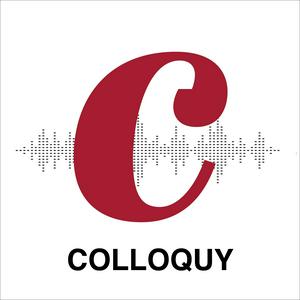68 episoder
- How did the Harvard PhD experience influence W.E.B. Du Bois, the man who would become one of the leading Black activists and intellectuals of the 20th century? And what connections did he make in the vibrant Black community outside of campus? Join us as we explore these questions in the first of a two-part conversation with New York University professor and National Humanities Medal recipient David Levering Lewis, winner of the Pulitzer Prize for his two-volume biography of W.E.B. Du Bois.
Voting Rights, Climate, and the Most Important Election in US History: A Conversation with Dean Emma Dench and Professor Stephen Ansolabehere
02.1.2026 | 45 min.As states around the country face off in a contest of Gerrymandering, what is the future of voting rights in the United States? Will the Supreme Court nullify what’s left of the landmark Voting Rights Act of 1965? How will accelerating climate change effect US politics? And what might happen in the all-important election of 2028? Harvard's Frank G. Thomson Professor of Government Stephen Ansolabehere, PhD '89, an expert in public opinion and elections and a consultant for the CBS News Election Decision Desk, recently joined Dean Emma Dench of the Harvard Kenneth C. Griffin Graduate School of Arts and Sciences to address these and other questions in a discussion of elections, energy, and the public mood.- Chronic traumatic encephalopathy, or CTE, is a neurodegenerative disease linked to repeated head injuries. It has been found in professional athletes, soldiers, and others who have experienced years of those traumas. New research from Harvard Griffin GSAS alumni Chanthia Ma and Guanlan Dong may help us better understand this condition. Their study looks at the smallest units of brain biology—individual neurons—and finds surprising clues written in the DNA itself. Using single-cell genome sequencing, they discovered that neurons in people with CTE carry distinctive patterns of genetic damage—patterns that may overlap with those seen in Alzheimer’s disease. In this episode of Colloquy, Ma discusses how her work not only sheds light on how brain trauma leads to long-term decline but also hints at possible shared mechanisms across different neurodegenerative conditions.
“Was the American Revolution a Civil War?” and Other Thorny Questions about the Nation’s Founding
07.11.2025 | 36 min.Us against the redcoats. That's how we often think of the American Revolution. In Ken Burns’ latest film, scheduled to drop later this month on PBS, the acclaimed documentarian takes on that simplistic notion of the nation's founding and many others. The revolution was actually a civil war, Burns says, one that pitted Americans, including indigenous and Black folk, against each other as much as the British.
So, what were the divisions among the inhabitants of the British colonies and their neighbors? How did they flare into war? How did a fledgling nation with no central government or standing army defeat the world’s largest empire? And what were the contributions of indigenous and Black people and women? Philip C. Mead, PhD ’12, former chief historian and head curator of the Museum of the American Revolution in Philadelphia, weighs in.- “How long have you been in the snare of the devil?” That was the lose‑lose question asked of those—mostly women—accused of witchcraft in Essex County, where Salem Village was located, in 1692. According to the Cornell University historian Mary Beth Norton, PhD ’69, however, it was the accusers, rather than their targets, who were in the thrall of something powerful. In her 2002 Ambassador Award–winning book In the Devil’s Snare, Norton says that the Salem witchcraft crisis was driven not by a demonic force, but rather by the trauma of the nearby wars with New England’s Indigenous populations—conflicts that had been raging for many years and had left an indelible mark on many refugees who fled to towns on the North Shore of Massachusetts.
Flere Uddannelse podcasts
Trendige Uddannelse podcasts
Om Colloquy
Conversations with visionary scholars and thinkers from the Harvard PhD community
Podcast-webstedLyt til Colloquy, Medgang og mange andre podcasts fra hele verden med radio.dk-appen

Hent den gratis radio.dk-app
- Bogmærke stationer og podcasts
- Stream via Wi-Fi eller Bluetooth
- Understøtter Carplay & Android Auto
- Mange andre app-funktioner
Hent den gratis radio.dk-app
- Bogmærke stationer og podcasts
- Stream via Wi-Fi eller Bluetooth
- Understøtter Carplay & Android Auto
- Mange andre app-funktioner


Colloquy
Scan koden,
download appen,
begynd at lytte.
download appen,
begynd at lytte.
